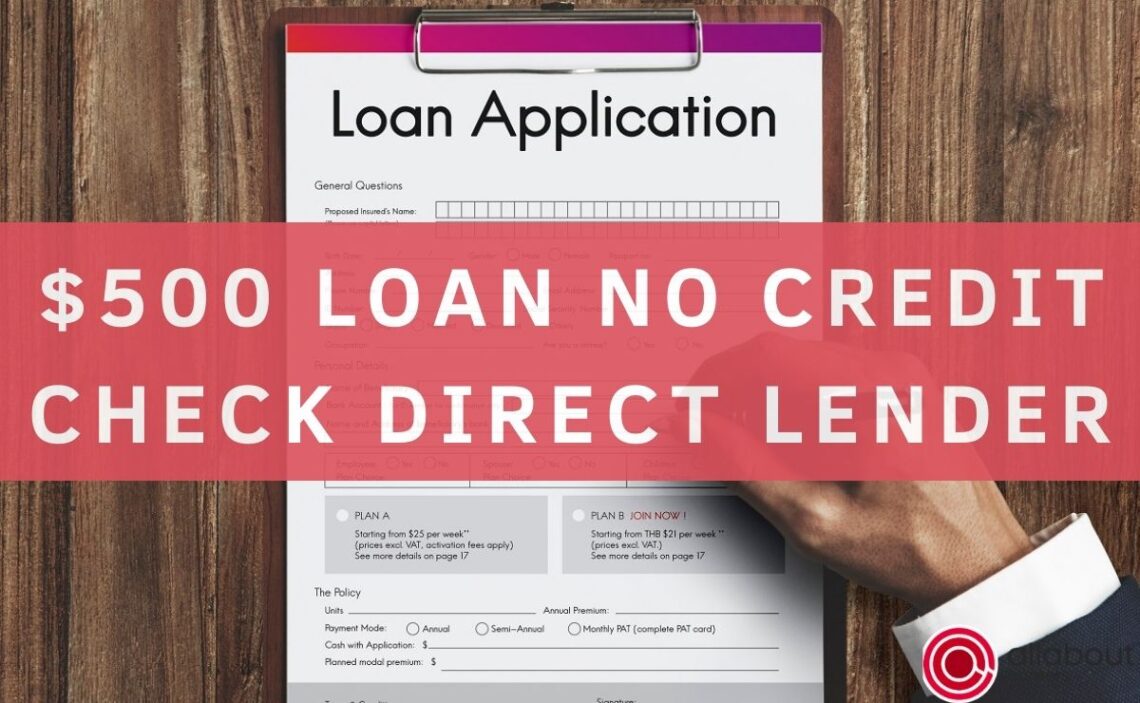Cash Advance Online No Credit Check Direct Lender

The allure of instant financial relief offered by "Cash Advance Online No Credit Check Direct Lender" services is drawing in a growing number of individuals desperate for quick funds. However, this seemingly convenient solution masks a complex web of potential risks, from exorbitant interest rates to cycles of debt that can be difficult to escape.
These lenders, operating primarily online, promise fast cash without the traditional credit checks associated with banks and credit unions. This article delves into the realities of these no-credit-check loans, examining their mechanics, the populations they target, the regulatory landscape, and the long-term consequences for borrowers.
Understanding the Appeal and Mechanics
The appeal of no-credit-check cash advances is undeniable, particularly for those with poor or nonexistent credit histories. Traditional lending institutions often deny applications from individuals with low credit scores, leaving them with limited options when facing unexpected expenses or financial emergencies.
Direct lenders advertise ease of access: a quick online application, minimal documentation, and funds deposited directly into a bank account, often within 24 hours. This streamlined process offers a stark contrast to the often lengthy and cumbersome procedures required by conventional lenders.
However, this speed and accessibility come at a significant cost. These loans frequently carry extremely high interest rates, sometimes exceeding 300% APR. This is significantly higher than traditional loans or credit cards, making them incredibly expensive in the long run.
Target Demographic and Vulnerability
The primary target audience for these loans are individuals with low incomes, limited savings, and poor credit scores. These are often people living paycheck to paycheck, facing unexpected medical bills, car repairs, or other urgent financial needs.
According to the Consumer Financial Protection Bureau (CFPB), communities with a higher percentage of minority residents and lower levels of financial literacy are disproportionately targeted by predatory lenders. This makes vulnerable populations even more susceptible to the pitfalls of these loans.
The lack of a credit check, while seemingly beneficial, actually prevents lenders from assessing a borrower's ability to repay the loan. This can lead to a cycle of borrowing, where individuals take out new loans to cover existing debts, spiraling deeper into financial hardship.
The Regulatory Landscape and Consumer Protection
The regulation of cash advance lenders varies significantly across different states. Some states have strict usury laws that cap interest rates and limit the terms of these loans, effectively making them illegal. Other states have more lax regulations, allowing lenders to operate with minimal oversight.
The CFPB has attempted to implement federal regulations to protect consumers from predatory lending practices. However, these efforts have faced legal challenges and political opposition, resulting in an inconsistent and fragmented regulatory environment.
Consumer protection advocates urge borrowers to be wary of lenders who promise guaranteed approval or make unrealistic claims. They also emphasize the importance of reading the fine print and understanding the terms and conditions of any loan before signing on the dotted line.
The Long-Term Consequences
While cash advances may offer immediate relief, the long-term consequences can be devastating. The high interest rates and fees can quickly compound, making it difficult to repay the loan on time.
Failure to repay a cash advance can damage credit scores, making it even harder to access affordable credit in the future. It can also lead to collection calls, legal action, and wage garnishment.
According to a study by the Pew Charitable Trusts, borrowers who take out payday loans are more likely to experience financial instability, including difficulty paying bills, falling behind on rent or mortgage payments, and even facing bankruptcy.
Alternatives to Cash Advance Loans
Before resorting to a no-credit-check cash advance, consider exploring alternative options. These may include negotiating a payment plan with creditors, seeking assistance from local charities or social service agencies, or applying for a personal loan from a credit union.
Credit counseling services can provide valuable guidance and support to individuals struggling with debt. These services can help borrowers create a budget, negotiate with creditors, and develop a plan to improve their financial situation.
Some employers offer salary advances or small-dollar loans to their employees, which can be a more affordable alternative to payday loans. It is also prudent to build an emergency fund, even a small one, to cover unexpected expenses without resorting to high-interest debt.
Moving Forward: Responsible Lending and Financial Literacy
Addressing the issue of predatory lending requires a multi-pronged approach. This includes stronger regulations, increased consumer education, and greater access to affordable financial services.
Promoting financial literacy is crucial in empowering individuals to make informed decisions about their finances. This includes teaching basic budgeting skills, understanding credit scores, and recognizing the dangers of predatory lending practices.
Ultimately, the goal should be to create a financial system that is both accessible and fair, providing individuals with the tools and resources they need to build a secure financial future. The proliferation of "Cash Advance Online No Credit Check Direct Lender" services highlights a systemic problem that needs comprehensive and thoughtful solutions.





